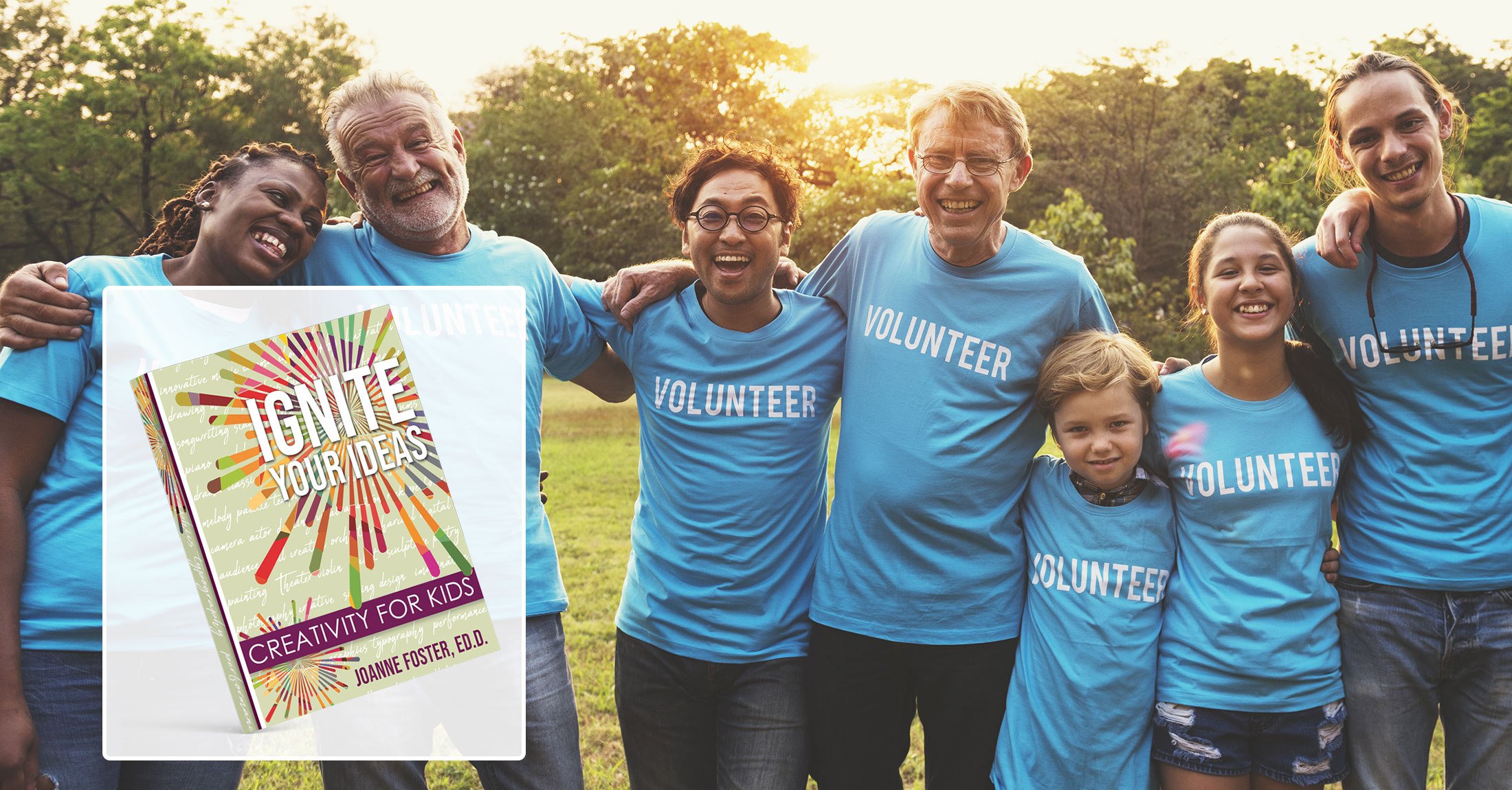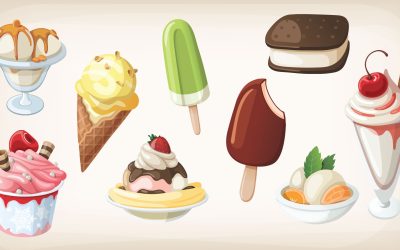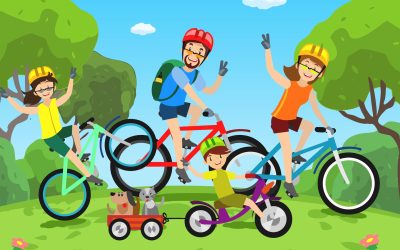EXCERPT FROM IGNITE YOUR IDEAS: CREATIVITY FOR KIDS (pp.45 – 46)
We learn by connecting, communicating, socializing, information-gathering, sharing, and being part of networks…
About Connections
Connections have the potential to be transformative; that is, they can affect the way a person’s life unfolds.
Here’s a bit of imagery to consider. Imagine a sturdy braided lifeline that you can hold on to, and that will offer you support when you feel vulnerable or aren’t sure how to proceed. Now imagine that the three braided threads are family bonds, friendships, and community ties.
Collaborations and open communication channels across family members, friends, and people within your neighborhood can buttress and accelerate your ideas, learning, resource access, and creativity.
A community is a group of thinkers, doers, or collaborators. Your community may be comprised of people you know from different times, places, and stages of life—through real interaction or online connectivity. (But be safety conscious whenever you embark upon virtual outreach!) Each connective experience you have is an opportunity to forge yet another community, to meet individuals from different walks of life, and to build relationships.
How and Where Can You Maximize Connectivity?
Check out local flyers, community newsletters, neighborhood bulletin boards, and school-based recommendations for extra-curricular options. Consider looking into youth groups, team sports, and mentorships; programs at libraries, houses of worship, and recreational centers; artistic pursuits, including galleries, art shows, museum exhibits, and theaters; and areas of personal or family interest such as social justice, environmental concerns, volunteerism, culture, or science. For example, there are lots of “ologies” or forms of knowledge from A (astrology), through E (ecology), to G (geology), and P (paleontology), to Z (zoology). Perhaps you can join clubs relating to such topics, or clubs where you can engage with people interested in books, chess, craftsmanship, or artificial intelligence. Any of these community-based avenues can help you realize intellectual, social, or other kinds of fulfilment, and fire up your creative and analytical thinking skills, too!
Psychologist and researcher Scott Barry Kaufman notes that people have inner strengths and creativity that they often don’t tap into because they tend to focus too much on a “very narrow slice” of who they are—their interests, close friends, and regular daily activities. However, extending outward can be extremely gratifying and help you grow. Sometimes what’s needed are other perspectives, encouragement, fresh experiences, or just some human connection.
Those who reach out to others and embrace life collectively become enriched through the experience.








